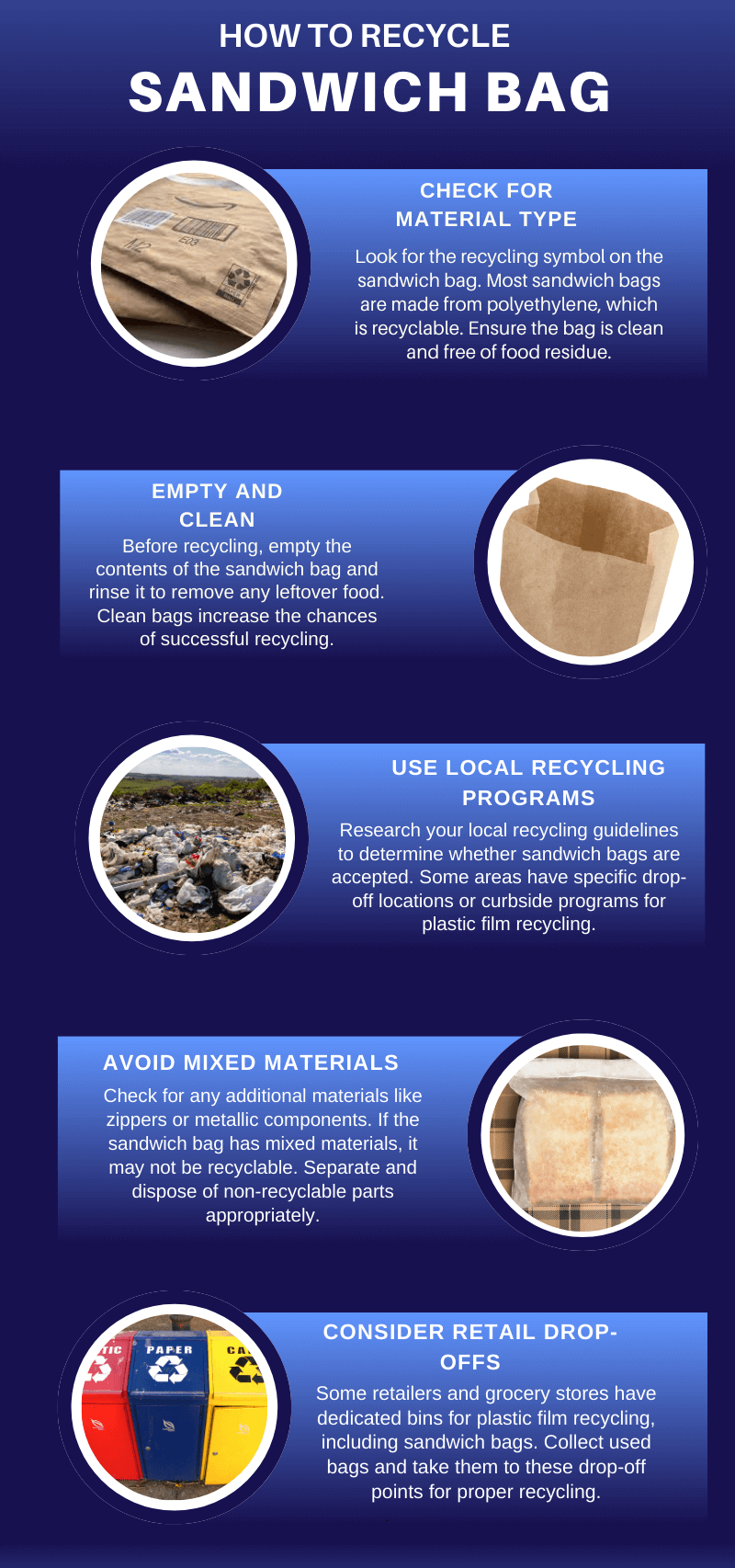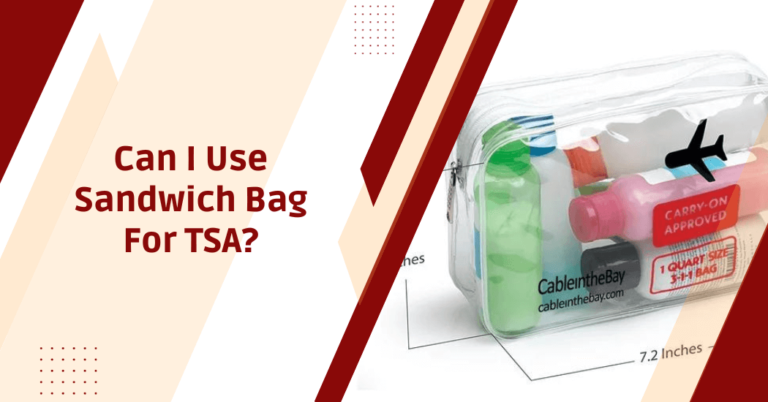Are sandwich bags recyclable?
In the current age of environmental awareness, evaluating the impact of our daily products has become increasingly crucial. One such ubiquitous product is the humble sandwich bag. Often used for packing lunches or storing leftovers, these bags play a significant role in our daily lives.
But have we ever stopped to consider their environmental impact? Are sandwich bags recyclable or biodegradable? This question is not only relevant but also vital in assessing our contribution to environmental sustainability.
In this blog post, we will delve into the recyclability and biodegradability of sandwich bags, shedding light on the environmental impact of this commonplace item and offering insights into sustainable choices for a more eco-conscious future.
Are sandwich bags recyclable?
The short answer is yes, sandwich bags are recyclable. However, it’s not as simple as tossing them in your curbside recycling bin. Sandwich bags are made from plastic, typically low-density polyethylene (LDPE) or high-density polyethylene (HDPE).
These types of plastics are generally accepted for recycling but require special handling and processing due to their flexible nature.
This can cause damage and delay in processing, leading to higher costs for the recycling facility. As a result, many municipalities have separate drop-off locations specifically for plastic bags and films.
It’s essential to check with your local recycling facility or municipality to see if they accept plastic bags and what types of bags are accepted. Some facilities may only accept certain types of plastic bags, so it’s crucial to know the guidelines specific to your area.
Factors affecting the recyclability of sandwich bags
Several factors can affect the recyclability of sandwich bags. Let’s delve into some of them:
- Material type: The type of plastic used in the production of sandwich bags plays a critical role in their recyclability. LDPE and HDPE plastics are generally recyclable but some sandwich bags are made from other types of plastic that might not be accepted by all recycling facilities.
- Contamination: Any leftover food residue or grease on the sandwich bag can interfere with the recycling process. For this reason, it’s essential to thoroughly clean and dry sandwich bags before recycling them.
- Local recycling policies: Different municipalities have different rules and infrastructures for recycling. Some accept plastic bags in curbside bins, while others require you to drop them off at specific locations.
- Manufacturing process: Certain sandwich bags are manufactured with additives that can compromise the recycling process. For instance, oxo-biodegradable plastics are designed to break down under specific conditions but can contaminate the recycling stream if not properly segregated.
- Recycling facilities: Not all recycling facilities have the machinery to sort and recycle flexible plastics like sandwich bags. Therefore, it’s crucial to ensure that your local facility can handle this type of waste.
How to recycle sandwich bags safely & effectively?
To recycle sandwich bags safely and effectively, follow these practical steps:
- Clean the sandwich bags: Before recycling, make sure the bags are free from food residue. Rinse them out with water and let them dry completely.
- Collect the bags: Don’t place sandwich bags directly in your recycling bin, as they can cause problems with the sorting machinery. Instead, gather them in a larger bag until you have a decent quantity.
- Drop them off: Most curbside recycling programs don’t accept sandwich bags. Therefore, find a grocery or retail store that has a designated drop-off area for these types of plastics. These facilities have the right infrastructure to recycle plastic bags and films properly, minimizing contamination and ensuring the material is processed correctly.
- Opt for a specialized recycling program: Several companies offer mail-in programs where you can send your clean sandwich bags for recycling. This option is especially useful if there’s no drop-off facility nearby.

Remember, recycling rules can vary between different municipalities, so always check local guidelines. While recycling sandwich bags is one step towards a more sustainable future, consider reducing usage by opting for reusable containers whenever possible.
Environmental impact of sandwich bags
| Environmental impact of sandwich bags | Explanation |
|---|---|
| Plastic production | Sandwich bags is typically made from plastic, which is derived from non-renewable fossil fuels. The production process releases greenhouse gases and creates pollution. |
| Landfill waste | If sandwich bags are not properly recycled, they end up in landfills, adding to the ever-increasing waste problem. They also take hundreds of years to decompose, contributing to the build-up of plastic waste in our environment. |
| Marine pollution | When sandwich bags are not disposed of properly, they can end up in our waterways and oceans, harming marine life and polluting the environment. |
| Carbon footprint | The energy required to produce, transport and dispose of sandwich bags contributes to our carbon footprint. By reducing usage and properly recycling these bags, we can minimize this impact. |
| Wildlife threat | Improperly disposed of sandwich bags can also be a threat to wildlife, as animals may mistake them for food or become entangled in them. |
FAQs – Sandwich Bags Recyclable/Biodegradable
How can I recycle my sandwich bags?
To recycle sandwich bags, clean them thoroughly to remove any food residue, collect them in a larger bag and drop them off at a designated recycling facility. Some companies also offer mail-in programs for recycling these types of plastics.
What are some alternatives to using sandwich bags?
Reusable containers, beeswax wraps and silicone bags are all more sustainable alternatives to plastic sandwich bags. They might be a bigger investment upfront but they can save money in the long run and help reduce environmental impact.
What types of sandwich bags are recyclable?
Generally, sandwich bags made from low-density polyethylene (LDPE) plastic are more likely to be recyclable. Look for the recycling symbol and check with your local recycling guidelines.
Can I recycle sandwich bags with food residue on them?
It’s best to rinse or wipe off any food residue from sandwich bags before recycling them. Excessive food residue can contaminate recycling streams and make recycling less effective.
How can I find out the specific recycling guidelines for my area?
Contact your local waste management or recycling authority for information on what can and cannot be recycled in your community.
Wrap Up
While sandwich bags can be recyclable under the right conditions, their impact on the environment is substantial. From their production process to their potential end in a landfill or waterway, the ecological footprint of these often single-use items is considerable.
It is crucial to remember that recycling is just one part of the sustainability equation; reduction and reuse are equally important.
By opting for reusable alternatives and conscientiously following local recycling guidelines when disposal is unavoidable, we can collectively mitigate the environmental impact of sandwich bags. Remember, every little step towards sustainability counts.





